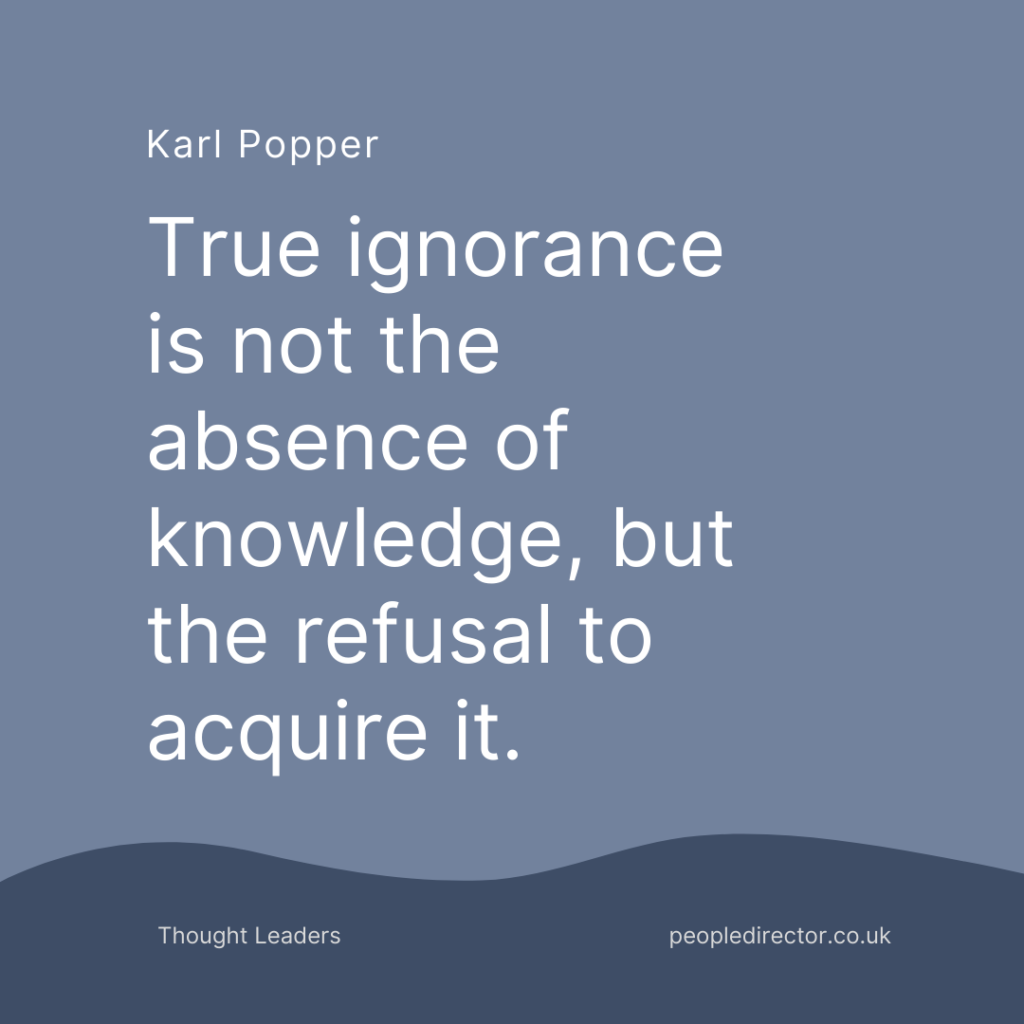
A lot of what we do in our work and lives had been explored and elaborated by some of the most talented minds in the history of our civilisation.
Personally, I have always had a passion for philosophy and psychology. I find great satisfaction in exploring and applying different concepts that can add value to the work I do for individuals and organisations.
After all, everything begins with an idea, a concept that can be simplified and transformed into a practical method, a tool, a policy, or a value that is integrated into daily operations or company policies to enhance performance.
At People Director, we thrive on challenging ideas and engaging in enthusiastic discussions and constructive debates about them. This is how we foster creativity at a deeper level and we absolutely love it. That’s why we’ve decided to share the thoughts of thought leaders we find inspiring. We call this series “Thought Leaders,” and the first one we’ll feature is Karl Popper. We’ll be sharing more of these in the future.
Be sure to follow our website and social media channels so you don’t miss out on these engaging thoughts and conversations. We hope you’ll find them as enriching as we do and share them further.
Anna B. Hayhurst
Global HR and OD Director
On Rational and Critical Thinking
Karl Popper, “On Freedom” (1958)

“When I speak of reason or rationalism, all I mean is the conviction that we can learn through criticism of our mistakes and errors, especially through criticism by others, and eventually also through self-criticism.
A rationalist is simply someone for whom it is more important to learn than to be proved right; someone who is willing to learn from others — not by simply taking over another’s opinions, but by gladly allowing others to criticize his ideas and by gladly criticising the ideas of others.
The genuine rationalist does not think that he or anyone else is in possession of the truth; nor does he think that mere criticism as such helps us achieve new ideas. But he does think that, in the sphere of ideas, the only critical discussion can help us sort the wheat from the chaff. He is well aware that acceptance or rejection of an idea is never a purely rational matter, but he thinks that only critical discussion can give us the maturity to see an idea from more and more sides and to make a correct judgement of it.”
About Karl R. Popper
Sir Karl Raimund Popper (1902 – 1994) was an Austrian and British philosopher, a professor at the LSE, and one of the most influential philosophers of science of the 20th century. Popper wrote about critical rationalism suggesting that scientific theories and any other claims to knowledge can and should be rationally criticised and, if they have empirical content, can and should be subjected to tests which may falsify them. Thus claims to knowledge may be contrastingly and normatively evaluated.
In his book “Karl Popper, Science and Enlightenment”, published by UCL Press in 2017, Nicholas Maxwell writes: “Here is an idea that just might save the world. It is that science, properly understood, provides us with the methodological key to the salvation of humanity. A version of this idea can be found buried in the works of Karl Popper.”


If you need to improve the organisational and business performance, send a note here or call +44 (0) 7783 908571 and speak with our lead business and HR consultants. We have helped hundreds of organisations from 24 business sectors to thrive and we will do the same for you in these challenging times.
